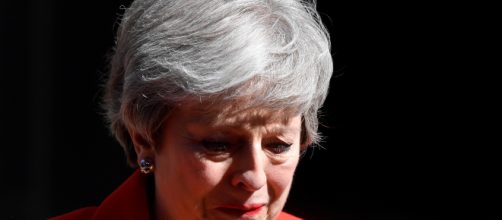In a tearful state address, British Prime Minister Theresa May announced Friday that she will be stepping down on June 7 because she failed to deliver Brexit as she had anticipated. Whereas the announcement came as a surprise not only to the British people but also to many in the world, pundits believed the move was likely, especially after Members of Parliament dealt her plans a deathblow several times. Plus within the Conservative ranks themselves, there has been some unhappiness with her efforts.
British overseas investments
The British government and investors have invested billions of dollars in the EU.
Her vain efforts to attain a deal with the 28 European Union member states have created sharp divisions within her party and parliament at large, a move that has compounded to her untimely exit.
According to studies noted by the BBC after the June 2016 referendum in which 51.9 percent of the British population voted for exit, foreign investments from the EU into the UK decreased by almost 11 percent. The British economy could have suffered more significantly in the advent of a no-deal Brexit.
Acrimony in British Parliament
Theresa May had earlier asked for a three-month delay to Brexit after her government failed to meet the Brexit deadline which was earmarked for March 29. European Union members, especially France and German believed her plans were meant to buy time to get her thrice-rejected Brexit deal through an acrimonious parliament.
According to CBS, May’s re-negotiated plan on trade policy with the EU could have increased prices of basic products such as fruits and vegetables, which could, in turn, have resulted in more cardio-vascular conditions among the population. Sensing another hostile confrontation in parliament, May threw in the towel thereby complicating the Brexit move.
Rise and fall of Theresa May
May’s short glitch into the international limelight was marred by controversies occasioned by the Brexit referendum. From the onset, she blatantly ignored the voices of reason for a quick exit from the European Union. She stood a great chance to walk into the footsteps of her political mentor and former Prime Minister Margret Thatcher.
She, however, leaves behind a tainted political legacy.
Her exit further implies that the new Conservative leader to replace her at the 10 Downing Street must holistically redress the Brexit plan by re-negotiating a reasonable exit plan that will benefit all the 28 EU member states as well as uphold the British peoples’ overwhelming verdict to vacate the European Union.
The soon to be chosen Conservative leader must also look into the verdict of Scotland and Northern Ireland which voted to remain in the European Union by 62 percent and 55.8 percent respectively. Hopefully, the new leader will not bulldoze a way out of Europe in a manner that impacts harshly on the economy.


